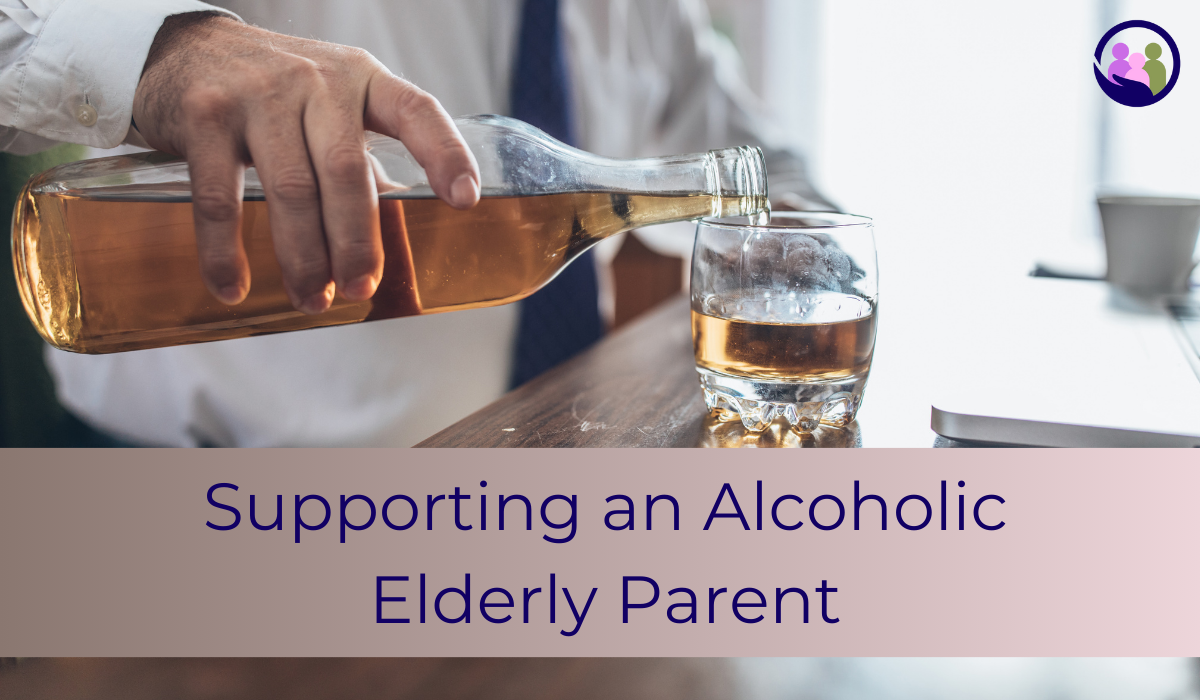Supporting an Alcoholic Elderly Parent

Growing old brings its own set of challenges, and when alcoholism becomes a part of the equation, it can complicate matters even further. As adult children, watching our parents age can be difficult, but dealing with the added complexity of alcoholism requires patience, understanding, and a strategy tailored to the specific needs of the situation.
In this article, we'll explore the nuances of supporting an alcoholic elderly parent and offer practical advice on how to navigate this challenging journey.
Recognizing the Signs of Alcoholism in Elderly Parents
Identifying alcoholism in elderly parents can be challenging, as it may be masked by other age-related issues such as forgetfulness or physical ailments. However, there are certain signs and behaviors that may indicate a problem with alcohol:
- Increased isolation or withdrawal from social activities
- Changes in mood or behavior, such as irritability or depression
- Neglect of personal hygiene and appearance
- Memory lapses or confusion
- Secretive behavior regarding alcohol consumption
- Physical signs of alcohol abuse, such as slurred speech or unsteady gait
Approaching the Conversation with Compassion and Understanding
Broaching the topic of alcoholism with an elderly parent requires sensitivity and empathy. It's essential to approach the conversation with compassion, understanding that denial and resistance are common reactions. Here are some tips for initiating the discussion:
- Choose a time when your parent is sober and relatively calm.
- Express your concerns in a non-confrontational manner, focusing on how their drinking affects their health and well-being.
- Listen actively to their perspective and validate their feelings, even if you disagree.
- Offer support and reassurance that you are there to help them seek treatment and navigate the challenges ahead.
Seeking Professional Help and Support
Dealing with alcoholism in elderly parents often requires professional intervention. Here are some resources and support options to consider:
- Alcoholics Anonymous (AA): Encourage your parent to attend AA meetings, where they can connect with others who understand their struggles and receive support in a non-judgmental environment.
- Therapy: Individual or family therapy can provide a safe space for your parent to explore the underlying issues contributing to their alcoholism and develop coping strategies for managing cravings and triggers.
- Medical Intervention: Consult with your parent's primary care physician or a geriatric specialist to assess their physical and mental health and explore treatment options, such as medication-assisted therapy or detox programs.
- Caregiver Support Groups: As a caregiver, it's essential to prioritize your own well-being. Joining a support group for adult children of alcoholic parents can provide a sense of community and solidarity, as well as valuable coping strategies and resources.
Setting Boundaries and Self-Care
Supporting an alcoholic elderly parent can take a toll on your own mental and emotional health. It's essential to establish boundaries to protect yourself while still offering support to your parent. Here are some strategies for setting boundaries:
- Clearly communicate your expectations and limitations to your parent, such as refusing to enable their drinking or engaging in arguments while they are intoxicated.
- Prioritize self-care activities that recharge your batteries and reduce stress, whether it's exercise, meditation, or spending time with supportive friends and family.
- Seek professional help or counseling if you find yourself feeling overwhelmed or struggling to cope with the challenges of caregiving.
Conclusion
Supporting an alcoholic elderly parent is a complex and emotionally draining journey, but it's essential to remember that you are not alone. By approaching the situation with compassion, seeking professional help and support, and prioritizing your own well-being, you can navigate this challenging time with grace and resilience. Remember to be patient with both yourself and your parent, and celebrate the small victories along the way.
We invite you to share your experiences and insights in the comments section below. Your stories and perspectives can offer valuable support and encouragement to others who may be facing similar challenges.
Join Free Today: Elderly Family Caregiver Support Group
 Are you a family caregiver looking for a space to share, connect, and learn from others who understand your journey?
Are you a family caregiver looking for a space to share, connect, and learn from others who understand your journey?
Join the Elderly Family Caregiver Support Group from Caregiver Bliss dedicated to uplifting elderly family caregivers. Share experiences, find solace, and connect with kindred spirits on this journey of love and care.
Our Facebook support group is here to uplift you, inspire you, and remind you that you're never alone. Join us today and get the support you need!
